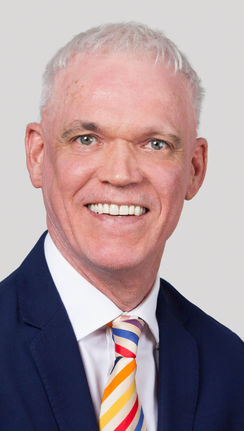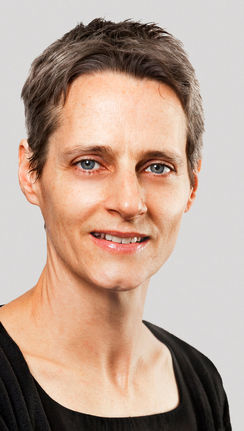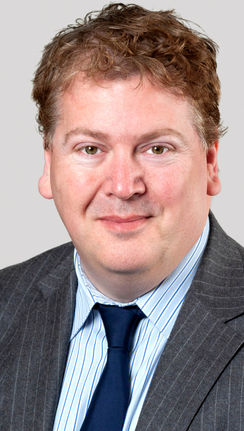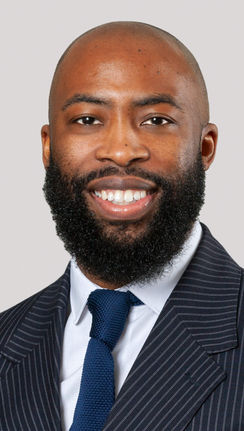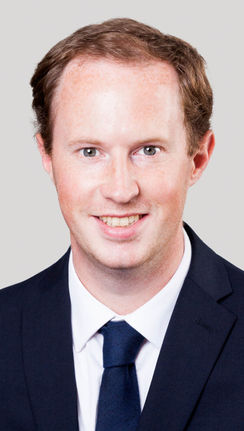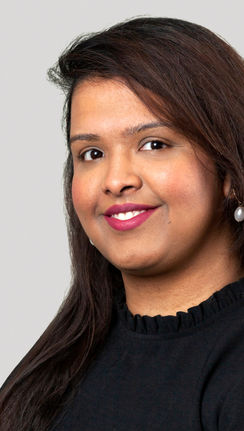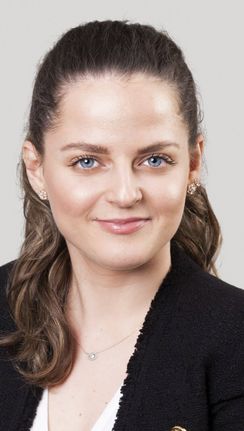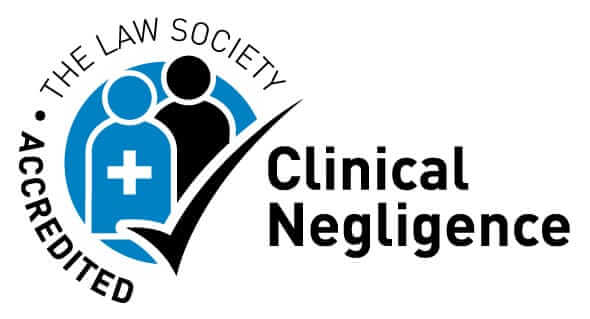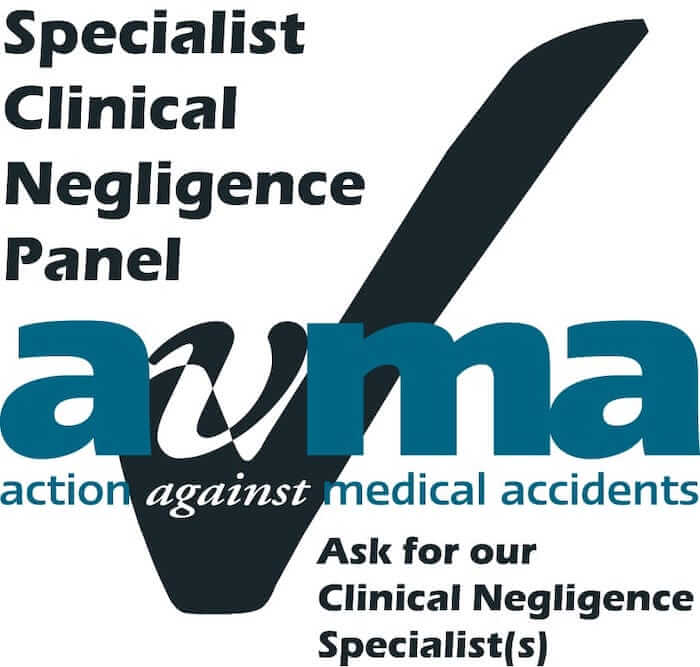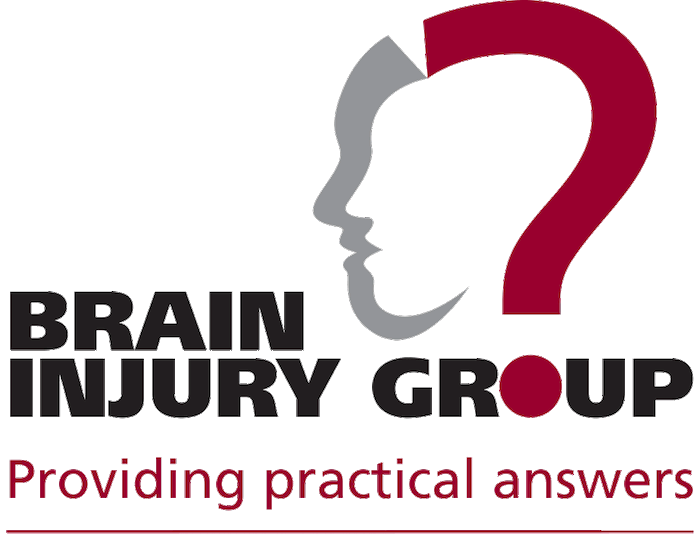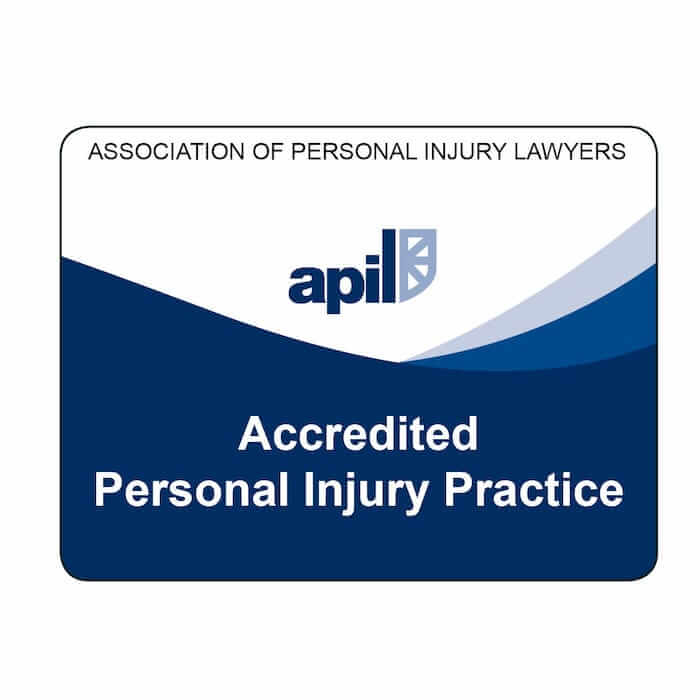Expert Medical Negligence Solicitors
If you receive medical treatment or have a procedure and things don’t go to plan, the outcome can be life-changing. If this happens to you, getting legal advice from a specialist medical negligence solicitor can be invaluable. We can help get the compensation you deserve, offering advice and guidance on your medical negligence claim throughout the process.
Our team of expert solicitors are leaders in their field. They will give you clear, practical advice, guidance and support to ensure you get answers as to what went wrong and the financial compensation you deserve. Whether through misdiagnosis, procedure error or inadequate treatment.
Many of our trained lawyers have a background in healthcare, so they have the benefit of extensive medical knowledge to support your claim. We can support you throughout your case against private practitioners and the NHS, including GPs and hospitals.
All our cases work on a no win, no fee basis, meaning you only have to pay us for our help if we are successful.
 “Excellent team, with plenty of medical experience behind it, as well as involvement in some of the biggest cases. They are an excellent firm for individuals, and will go the extra distance for them.” – Legal 500, 2025
“Excellent team, with plenty of medical experience behind it, as well as involvement in some of the biggest cases. They are an excellent firm for individuals, and will go the extra distance for them.” – Legal 500, 2025
 The team has been ranked in the Chambers & Partners 2025 legal directory. “Hodge Jones and Allen work incredibly diligently to get the outcomes their cases require and show serious commitment to the social justice outcomes of their work.”
The team has been ranked in the Chambers & Partners 2025 legal directory. “Hodge Jones and Allen work incredibly diligently to get the outcomes their cases require and show serious commitment to the social justice outcomes of their work.”
Our wide range of services:
What is medical negligence?
Medical negligence is where a healthcare professional caring for you administers the incorrect treatment, inadequate treatment or misdiagnoses and you suffer an injury, or your health worsens as a result.
Doctors, nurses, dentists and all other healthcare professionals have a duty to look after you and treat you to an accepted medical standard. If the medical professionals taking care of you fail to provide the appropriate treatment and you suffer an injury as a result, you may be entitled to make a claim for medical negligence compensation.
You may need to make an NHS claim or seek a financial settlement with a private practice.
"MY SOLICITOR WAS VERY SUPPORTIVE AND UNDERSTANDING, EASY TO TALK TO, EXTREMELY KNOWLEDGEABLE AND PROFESSIONAL, AND GAVE EXCELLENT ADVICE. I WAS KEPT FULLY INFORMED FROM START TO FINISH."
Medical negligence claim services
Our expert medical negligence solicitors can support you through a variety of different cases.
Abdominal aortic aneurysm
Tragically, delayed diagnosis or misdiagnosis of a ruptured aortic aneurysm can be fatal. If you or someone you love has complications from aortic aneurysm non-diagnosis or misdiagnosis then you may be able to make a claim for your injuries and financial losses.
Accident & Emergency negligence
A&E doctors are under great pressure to treat patients quickly and safely. This can, unfortunately, lead to mistakes being made and negligence occurring.
If you or someone you love has suffered harm as a result of negligent treatment by an A&E department then you may be able to make a claim for your injuries and financial losses.
Birth injuries
We know that the birth of a new baby is a very special time for parents and indeed the whole family. If things go wrong, either during pregnancy or birth, the effects can be devastating.
If either mother or baby suffers an injury due to medical negligence, then you can claim for compensation.
Brain injuries
When receiving medical treatment or undergoing a procedure there are always risks. But, sometimes, the injuries and ramifications that occur during surgery are the results of errors made by the surgeon.
If you or your family have been affected, our experts will advise you comprehensively about the merits of your potential claim.
Cancer misdiagnosis
Receiving a misdiagnosis for cancer has serious and often life-changing or life-shortening consequences. Our medical negligence solicitors specialise in getting compensation for those who have suffered as a result of a cancer misdiagnosis.
Care home negligence
We all want our loved ones to be treated with dignity and have all their health care needs met in a professional and caring fashion. It is devastating if the care you expect from their care home is not delivered, leading to a physical injury or medical complication.
Cerebral palsy
If your child has got cerebral palsy due to errors made by midwives or doctors, you may be entitled to a settlement.
We will work closely with you to secure compensation to pay for care, rehabilitation, equipment and new accommodation, if required, or adapted accommodation if the family’s current home requires this.
General practitioners
If your GP or nurse associated with your GP practice has given you bad advice or not taken your concerns seriously, and this has led to a delay in diagnosis, you may have a claim. You may also be able to claim if you have been given the wrong treatment, or your doctor has made a misdiagnosis that has led to an injury.
Gynaecology
During childbirth, some women suffer gynaecological injuries. In some cases, those injuries come as a result of poor care and treatment provided either by a GP or the gynaecological department of a hospital.
Our medical negligence team are experts in the compensation process for negligence related to gynaecological practices, including misdiagnosis and injury.
Hospital negligence
When you are in hospital following an injury or illness the expectation is that you will receive the best quality and most appropriate treatment. Sometimes, however, this is not the case and the consequences can be life-changing. If you feel an error may have led to injury or a worsening of your condition, you may be able to claim for compensation with the support of our expert team.
Intensive care and anaesthetics
If you wake up during an operation it can be hugely traumatic. As a result, you may suffer severe psychological injuries, such as anxiety, depression, or in the worst cases post-traumatic stress disorder (PTSD). Other mistakes made by anaesthetists during surgery, such as not properly monitoring blood pressure, can lead to strokes, brain damage and even death.
If you or a loved one have had this experience, then you will be entitled to make a claim for compensation.
Orthopaedic claims
Claims for orthopaedic injuries arise most commonly from errors in surgery or a failure or delay in diagnosis of a fracture. All these instances can have devastating impacts on your life and livelihood.
Our medical negligence team are experts in the compensation process for negligence related to orthopaedic practices, including misdiagnosis and injury.
Psychiatric injuries
Mental illness can affect many people. If medical professionals make errors with their treatment of your mental health there can be potentially tragic consequences.
Our team have many years’ experience in dealing sensitively with claims by mental health patients and their families. We’ll work closely with you to make a claim for damages due to negligent psychiatric treatment.
Sepsis
Sepsis is defined as the reaction of the human body to a bacterial infection. If misdiagnosed or missed by healthcare professionals, the results can be fatal. If you or your family have been affected by a failure to diagnose or misdiagnose sepsis, you may be entitled to claim compensation.
Spinal injuries
Spinal injuries are inevitably serious, traumatising and life-changing in that they usually cause some degree of paralysis. Most spinal injuries that result from medical negligence occur as a result of a delay in diagnosis, or incorrect surgery.
Our highly experienced team of specialist clinical negligence lawyers are here to assist and to advise throughout your medical negligence case.
Surgical error
All surgery carries some risks, however, there are cases where a clear failure by surgeons to perform the operation to an acceptable standard result in severe impacts on your life.
If you feel negligent surgery has caused you injury, you may be entitled to compensation to help you adjust to your new life.
Making a claim for hospital negligence
When you’re in hospital following an injury or illness the expectation is that you’ll receive the best quality and most appropriate treatment. Sometimes, however, this isn’t the case and the consequences can be life-changing.
Hospital staff have huge responsibilities and often have to work under pressure and tight deadlines with many patients requiring their help throughout the course of their shift.
Any medical professional can make an inadvertent error which could lead to an unintended injury for their patient.
Many of our solicitors are medically qualified and understand the pressures faced by the NHS – especially front line doctors and nurses in busy hospitals. But we also understand there is a duty of care and when this is not upheld you have the right to justice.
We work to hold the NHS and private hospitals to account and work to get you financial compensation for their negligence.
Making a claim against a care home
When the time comes to move your loved ones into a care home, you want the absolute best treatment for them. You’ll want to ensure that they’re treated with dignity and that all their health and care needs are met in a timely, caring and professional manner.
If you find that this hasn’t been the case, it can be devastating, especially if it leads to a physical injury or medical complication.
Our clinical negligence team has extensive experience of care home negligence claims.
If your loved one doesn’t have the capacity to instruct a solicitor then we can advise on the appointment of a “Litigation Friend”. They will act in their best interests in relation to any legal proceedings.
"I CANNOT THANK YOU ENOUGH AND FEEL FORTUNATE TO HAVE HAD YOUR KIND SUPPORT AND EXPERTISE WHICH KEPT ME GOING."
How do I make a medical negligence claim?
- Once we’ve been made aware of your medical negligence complaint our team of specialist experts will gather information about your case.
- A partner in our team will review the information of your complaint and if there is a case, we will start the claim process.
- We’ll need to get your medical records to assess the negligence and any issues which have arisen.
- We’ll then appoint an independent medical expert to look at the issue to get a diagnosis of what the injuries are, and how this may affect you in the short and longer term.
- With all the evidence we’ll then make representations on your behalf to the negligent organisation or individual. This will include the cost of recovery, additional treatment or rehabilitation and further compensation to ensure you’re not at a loss following the negligence.
- Once we’ve finalised negotiations either, with a settlement or through the courts, you will receive your compensation.
What compensation am I entitled to?
The amount of medical negligence compensation you may be entitled to will depend on the nature and extent of your injuries. When calculating the medical negligence compensation amount you might receive, our specialist solicitors will consider:
- The severity of your injury
- The impact it has on you and your family
- Expenses or losses incurred
- Future expenses and treatment costs.
No Win No Fee Medical Negligence
The majority of our medical negligence claims are funded by ‘Conditional Fee Agreements (CFAs) – also known as “No Win, No Fee” agreements.
This means that you won’t have to pay anything at the outset, and there is no financial risk or obligation to you if your claim is unsuccessful. Your solicitor will provide clear information on what this means and answer any questions you may have.
If you are bringing a claim for a child who has suffered a brain injury at birth, you may be entitled to Legal Aid. Again, our specialist team of solicitors will be able to advise you on your options
"I can not thank Hodge Jones & Allen for all their support and help throughout my case in the last three years. It was a difficult and emotional time but they were there for me. All procedures were explained with patience and understanding at a sensitive time. I have no hesitation in recommending them."
Why choose Hodge Jones & Allen?
We’re independently recognised as leaders in this field by a number of different sources including the leading Legal Directories.
Many of our solicitors are members of the Law Society’s and AvMA’s (Action Against Medical Negligence) Specialist Clinical Negligence Panel and are accredited by the Association of Personal Injury Lawyers (APIL).
We also have several team members with a background in the healthcare profession, meaning they have an in-depth understanding of both the medical and legal sides of your case.
We will handle your case with the utmost sensitivity and care to limit your stress and keep the process as straightforward as possible.
Our proven track record of successfully bringing claims against the NHS, including hospitals and GPs as well as against private practitioners means you can have the confidence that we’ll do what we can to get the best possible outcome for you.
"They are extremely professional but always personable and made the whole process much easier, minimising stress and uncertainty," Chambers UK, 2021
How long does it take to bring a medical negligence claim?
The length of time your case will take depends on several factors. These include the extent and nature of the injury suffered, and whether your opponent denies liability.
We try to progress your case as quickly as possible, but you should be aware that your case could take years.
If liability is admitted, it may be possible to obtain a payment on account of your compensation before the conclusion of your case, which can take time.
We can give you a better idea about the timescale once we know more about your case and your opponent’s approach to it. We’ll ensure that you’re regularly updated throughout your case.
Who can I make a claim against?
Doctors, nurses, dentists and all other healthcare professionals have a duty to look after you and treat you to an accepted medical standard. If they fail to provide you with appropriate treatment and you suffer an injury as a result, you may be entitled to make a claim for compensation.
What do I need to prove to win my case?
Just because a medical professional has made a mistake, it doesn’t mean you’ll automatically be entitled to compensation. To bring a successful claim for medical negligence, you will need to satisfy two legal tests known as ‘breach of duty’ and ‘causation’.
- Breach of Duty – to establish there has been a breach of duty, you will need to show that the medical treatment you received fell below a reasonable standard.
- Causation – to establish causation you’ll need to show that the breach of duty directly caused you to suffer a physical or psychological injury that would not have otherwise happened.
It is essential to establish a link between the breach of duty and causation otherwise your claim will not succeed. You will then have to prove the extent of your losses and damage.
How will my case be funded?
We’ll explore all funding options with you in an open and transparent manner. There are four funding types available for medical negligence cases. These are:
- Conditional Fee Agreements (“No win, no fee”) – This means that we would not charge you any legal fees unless you win your case and would seek to recover our costs from your opponent in the first instance. The agreement permits a maximum deduction from your damages of 25%.
- ATE insurance – When we’re acting on a no win no fee basis, we may also advise you to take out a specialist type of insurance called After the Event Insurance Policy (ATE insurance). This is to protect you if your claim isn’t successful.
- Public funding (legal aid) – Legal aid or public funding from the Legal Aid Agency is still available for some cases. However, Legal Aid is now limited to cases where a child has suffered a brain injury during pregnancy, birth, or shortly after birth, which has resulted in severe physical or mental disability
- Legal Expenses Insurance (BTE) – Many people have this type of insurance but are unaware of it. Please carefully check any insurance policies you have, including motor and household insurance, and credit card agreements.
- Private funding – If we’re unable to act for you on a ‘no win, no fee’ basis then it may be possible to instruct us to act on a private retainer.
If you would like to discuss any of these funding methods further, you can speak with your solicitor.
Who pays the compensation?
Who pays the compensation if your case is successful will depend on who the Defendant is.
All NHS Trusts in England pay into a scheme called the Clinical Negligence Scheme for Trusts which is managed by NHS Resolution (NHSR). All compensation payments made by an NHS Defendant are paid from this fund. NHSR employs a panel of approved solicitors who represent NHS Trusts.
GPs, private doctors or dentists arrange their own insurance with specialist private insurance companies. These organisations are funded by premiums paid by their members.
Will I need to go to court?
Most cases settle through negotiation, with there being no need to take the matter to a full trial (i.e. argue your case in court, before a judge). If your case does go to trial, it will inevitably take longer to conclude than if it were to settle outside of court through negotiation. Although it’s rare for cases to go to trial – statistics show that just 0.5% of all clinical negligence cases go to trial.
If your case reaches the trial stage, then you’ll be called as a witness to give evidence in front of a judge. Your experts and other witnesses will also give evidence – as will the defence witnesses. If your claim gets to this stage, we can advise you about it in more detail.
What is the duty of Candour?
The professional duty of Candour is a statutory duty imposed on all healthcare professionals.
Every healthcare professional must be open and honest with patients when something that goes wrong with their treatment causes, or has the potential to cause, harm or distress. This means that healthcare professionals must:
- Tell the patient (or, where appropriate, the patient’s advocate, carer or family) when something has gone wrong
- Apologise
- Offer an appropriate remedy or support to put matters right if possible
- Explain fully the short and long term effects of what has happened.
Healthcare professionals must also be open and honest with their colleagues, employers and relevant organisations, to take part in reviews and investigations when requested, and encourage a learning culture by reporting adverse incidents that lead to harm, as well as near misses.
They must also be open and honest with their regulators, raising concerns where appropriate. They must support and encourage each other to be open and honest, and not stop someone from raising concerns.
What can I claim compensation for?
If you’ve suffered injury or damages due to medical negligence, you may be entitled to claim for two types of compensation:
- General Damages: For the pain, suffering and loss of amenity caused by the injury itself.
- Special Damages: Special Damages are the damages awarded for any past or future financial loss. These are individually calculated for each case. Special damages claims can comprise:
- Loss of earnings/loss of promotion prospects – for unpaid time off work in the past or for loss of promotion prospects in the future.
- Past care and future care needs – a claim can be made for the unpaid (gratuitous) care provided by family members. We will take details of who has looked after you and calculate how many hours care has been provided. In significant cases, we will obtain expert evidence on the care required.
- Aids and equipment – if aids and equipment are required, this will be assessed by an expert Occupational Therapist that we will arrange to meet with you.
- Future medical treatment –if further treatment is needed, you are entitled to claim for this on a private paying basis.
- Prosthetics – amputees are entitled to claim for the costs of prosthetic in the private sector. It is generally accepted that it is not reasonable to expect a claimant to rely on NHS prosthetics only.
- Pension loss – if a medical accident has forced you to leave your job, it will be necessary to calculate your pension loss. This can sometimes be quite complex and may require an accountancy expert.
- Past/Future DIY and gardening – if your injuries prevent you from undertaking household tasks, a claim can be made for employing people to carry out those tasks on your behalf.
- Interest – interest is also claimed on all past losses
It can be difficult to advise at the outset as to the amount of compensation you may obtain if your case is successful. Every case is judged on an individual basis and the amount of compensation awarded can change drastically. As your case progresses, your solicitor will be able to give you a more accurate estimate of what your case is likely to be worth.
Can I bring a claim on behalf of my child?
Any injured person under 18 is considered a child. They are considered unable to have ‘capacity’ to conduct the claim themselves and deal directly with solicitors.
A claim involving a child is therefore conducted by a litigation friend, who acts on the child’s behalf. A litigation friend is often one of the child’s parents or a guardian. However, anyone that the court deems suitable can be a litigation friend. For example a relative or family friend, a solicitor or someone who has a lasting power of attorney.
Your solicitor will be able to guide through the process of being appointed as your child’s litigation friend.
Can I bring a claim on behalf of a deceased relative?
When someone dies, it may be possible for you to bring a claim on behalf of their estate, as long as you have standing to do so.
You will need to obtain a Grant of Probate or Letters of Administration in order to instruct us to act in such a case.
I don’t think my complaint has been properly dealt with.
If you are not happy with the response to your complaint, you are entitled to request an Independent Review by the Parliamentary and Health Service Ombudsman.
The independent review will be undertaken by the Parliamentary and Health Service Ombudsman (PHSO). The PHSO will make a final decision on your complaint and will look at it afresh. There is no charge for this service.






